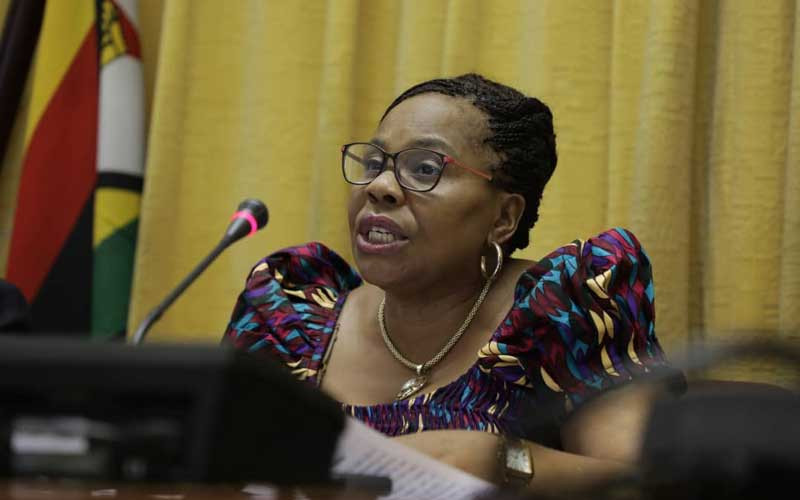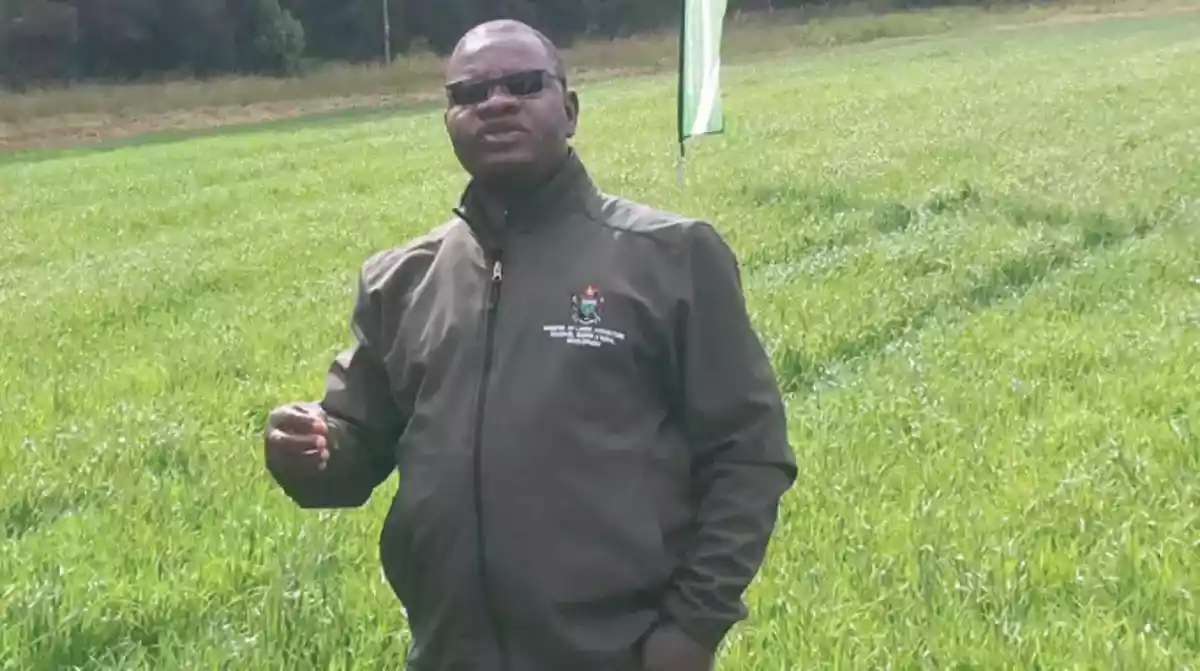
IN the past five years, several media reforms have been implemented in Zimbabwe. But in this interview with Information, Publicity and Broadcasting Services minister Monica Mutsvangwa (MM), our senior business reporter Freeman Makopa (FM) asks why there is no end to the arrest of journalists. Here is how Mutsvangwa sees the media landscape;
FM: The are concerns over media freedom in Zimbabwe. What is your take?
MM: The government realises the need for media freedom and has come up with a cocktail of legislative reforms that promote media freedom. At the instigation of President Emmerson Mnangagwa, in 2018, we set in motion processes that have guided legislative reforms in the media industry. Several legislative instruments have either been repealed, amended or promulgated to open up the airwaves for a liberal and vibrant media industry.
In July 2020, the government introduced the Freedom of Information Act Chapter 10:33, which repealed the Access to Information and Protection of Privacy Act Chapter 10.27. The purpose of the Freedom of Information Act is to ensure that the public has access to information held by public officials, knows their rights and holds public officers accountable and promotes transparency and good governance.
The Constitution of Zimbabwe of 2013, Section 61, says every person has the right to freedom of expression, which includes freedom to seek, receive and communicate ideas and other information among several freedoms. It also states that all State-owned media must be free to determine independently the editorial content of their broadcasts, be impartial and afford fair opportunity for the presentation of divergent views and dissenting opinions.
Section 62 of the Constitution of Zimbabwe 2013, states that every Zimbabwean citizen has the right to access information held by the state, agency or any government institution; every person including media institutions, has the right to access information held by any person including the state.
Zimbabwe Media Commission Act 9 of 2020, which was gazetted by the Second Republic on 2 April 2021, further capacitates mass media services to maintain high standards of quality in the provision of their services, assist in the training of persons in the provision of media services and promote public awareness on the right of access to information. Again, every mass media service, local or foreign-owned, is required to have its journalists accredited to freely practise.
This is evident in the government’s commitment to free media. As the ministry responsible for information dissemination, the Ministry of Information, Publicity and Broadcasting Services started the post Cabinet briefing to allow different media houses access to Cabinet decisions. This supports the government’s policy of ‘leaving no one and no place behind’.
- Mavhunga puts DeMbare into Chibuku quarterfinals
- Bulls to charge into Zimbabwe gold stocks
- Ndiraya concerned as goals dry up
- Letters: How solar power is transforming African farms
Keep Reading
FM: There have been cases where journalists have been harassed and arrested by authorities. Why is this ongoing?
MM: Section 61 paragraph 5 of the Constitution of Zimbabwe states that ‘freedom of expression and freedom of the media exclude incitement to violence; advocacy of hatred or hate speech; malicious injury to a person’s reputation or dignity and malicious or unwarranted breach of a person’s right to privacy’.
Therefore, in exercising their duties the media should not violate other people’s rights in order the avoid arrests. You will notice that arrests of media personnel have been made for legal infringements of a criminal nature not for practising journalism as such. A journalist arrested for inciting violence has not been arrested for being a journalist.
FM: There have been concerns about media ownership. Are foreigners allowed to operate media in Zimbabwe?
MM: According to the Broadcasting Services Act, to ensure that Zimbabweans have effective control of broadcasting services or systems…any person whose broadcasting service or signal transmission station is wholly or partly funded by foreign donations or contributions shall not be licensed.
Paragraph 8 (1) says a broadcasting licence shall be issued only to individuals who are citizens of Zimbabwe and ordinarily resident in Zimbabwe or to a corporate body in which a controlling interest is held, whether through any individual, company or association or otherwise, by one or more individuals who are citizens of Zimbabwe and ordinarily resident in Zimbabwe. You will notice that these limitations are in part informed by the need to safeguard the national security interests of the country, empower local practitioners and the advancement of national cohesion through retelling our narrative as viewed by our people.
FM: There have been concerns about the nature of journalism training in the country. How do you see the situation?
MM: The education 5.0 policy ensures that college and university students go on work-related learning exercises before completion of their studies and colleges and universities offering media studies have campus radio stations and magazines where students practice. There are also plans to standardise media training. Apart from these wholesale changes to the learning environment, we are also looking at introducing exchange programmes with world-renowned institutions specialised in media and broadcasting. I have personally spoken with institutions in India and the UAE willing to introduce the practical component to learning. So, we have done a lot to improve the practical component of media studies.
FM: Do you think the Zimbabwean media is playing its role in nation building?
MM: Yes, the media in Zimbabwe fulfils its role of educating, entertaining and informing the public on national developmental projects and it also acts as the watchdog. The media was instrumental in conveying critical information during the Covid-19 pandemic. That was critical for the collective safety of the nation. The media is also relaying critical information about the decision matrix of the Cabinet every week, and we are ensuring that key national developments are relayed timeously to our national audiences.
FM: What plans do you have as a ministry for 2023?
MM: (We are working to ensure we achieve) increased publicity for national mobilisation, the strengthening and capacitation of community radio stations and continuing lobbying for an enabling environment for the dissemination of information in real-time. We seek to improve the visibility of government projects through public outreaches and to create an enabling environment for the media through licensing and regulation. During this election year, we must ensure that the media upholds a peaceful environment and ensure all public is served in a free and transparent manner.
FM: The current economic pressures have seen journalists reportedly resorting to brown envelopes for survival. Has the ministry managed to engage employers to address remuneration issues?
MM: The ZMC Act 9 of 2020, gazetted by the Second Republic in 2021, capacitates mass media services to maintain high standards of quality in the provision of their services, assist in the training of persons in the provision of media services and promote public awareness on the right of access to information. The ministry has conducted meetings with editors and directors from different media houses emphasising the need for equal opportunities between male and female staff as well as the promotion of media ethics during the exercise of their duties. We desire that media practitioners enjoy world-class remuneration. So far, we have opened up the airwaves and this opened upemployment opportunities.
FM: How much is required for the ministry to carry out its mandate and how much was received from the budget?
MM: The ministry received a budget of $10 billion against a bid of $78 billion. You must bear in mind that we do not always get what we wish for as the government is burdened by so many things. But we will continue to request additional funding for us to meet our obligations.
FM: Radio and television licences were given to various players. What is the current status of those projects?
MM: The Broadcasting Services Act stipulates that all licensed broadcasters have to procure requisite equipment before they go on air. Out of the 14 licensed, we now have eight that have gone live on air and obviously, funding remains a challenge. But as the government, working with our partners, we will certainly assist.






